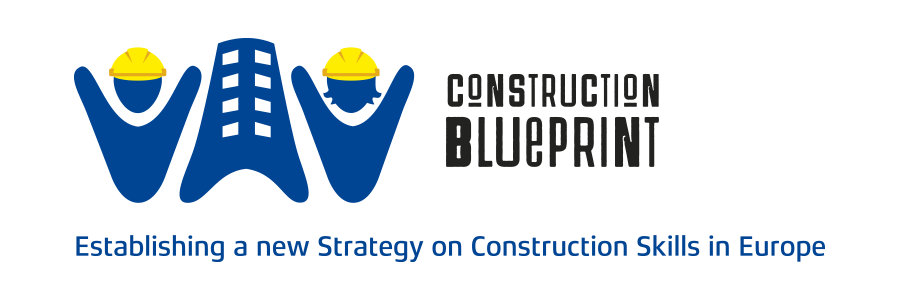The European consortium presents the Observatory for Sector Skills in Europe and discusses the results achieved by the project, as well as the next steps towards the closure of the Construction Blueprint
Today, 21 February, the partners of the Construction Blueprint held the last meeting of the project at the premises of the European Construction Industry Federation (FIEC), where they presented the European Observatory for Sector Skills to be launched in the coming weeks, and which was attended by representatives of the 24 institutions of the consortium to decide the final steps towards the closure of the project.
During the meeting, the good practices and lessons learned in more than four years of work were discussed, in which the main European sectoral organisations and VET providers, coordinated by Spanish partner “Fundación Laboral de la Construcción”, have cooperated to develop different innovative instruments to address skills gaps and labour shortages in the sector. In addition to launching initiatives to match labour supply and demand in the sector, while supporting the transition towards a sustainable construction sector.
Issues addressed during the meeting
During the meeting, the partners of the ‘Construction Blueprint’ project, co-funded by the Erasmus+ programme of the European Commission, presented the challenges addressed and the results developed.
- ‘Status Quo of sectoral skills’ report, in which an analysis of the skills needs in the construction sector is carried out.
- Roadmap and action plan, which has boosted the adoption of the Skills Pact for the Construction Industry.
- Interactive map, compiling good practices and innovative initiatives addressing skills gaps and mismatches in the sector.
- Three VET curricula updating the training offer on Energy Efficiency, Digitalisation and Circular Economy, structured in 45 training modules, which have been tested through pilot courses in each of the consortium countries by more than 800 workers and students.
- Moodle platform containing a collection of more than 60 open online short courses for self-learning in different languages in the above mentioned thematic specialisations.
- Construction Skills Observatory. A web-based tool for the identification of skills needs at European and national level, based on surveys of companies in the sector.
- Campaign to improve the attractiveness of construction, through actions aimed mainly at young people and women to promote their access to the sector.
- Social media campaign, which compiles a series of short videos where construction VET students share their experiences.
The partners also discussed some technical and logistical aspects of the European ‘Construction Blueprint’ closing event, which will take place tomorrow, 22 February, in Brussels, at Residence Palace (Polak Room). The meeting will be held in English, with live broadcast in Spanish and French, and is structured in three round tables with high-level speakers who will discuss the skills needed for Digitalisation, Circular Economy and Energy Efficiency in the construction industry.




